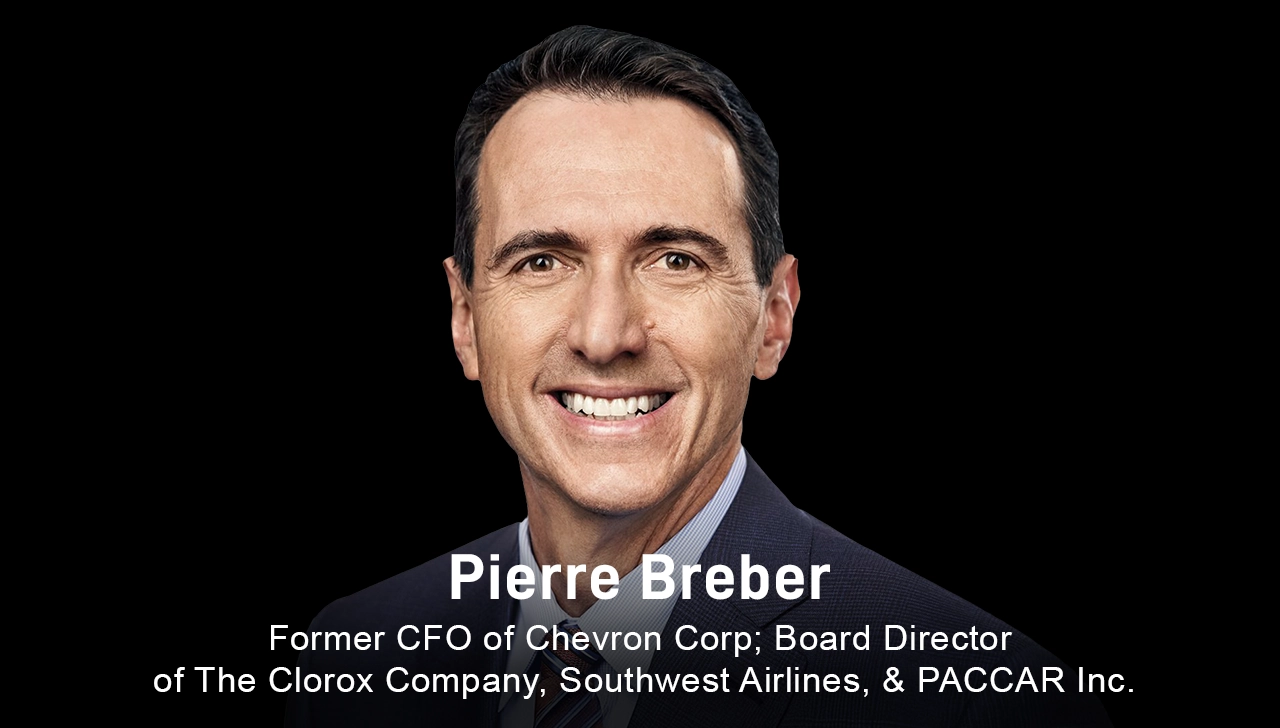ExCo Insights
Pierre Breber’s Leadership Lessons | ExCo Insights
ExCo Insights
In this series, we explore some of the most important lessons and insights from our executive coaches and mentors.
Pierre Breber, executive coach and mentor at The ExCo Group, former CFO of Chevron Corp, Board Director of The Clorox Company, Southwest Airlines, and PACCAR Inc., shares his key leadership lessons. These include acting on feedback, talking about work-life balance, and the importance of relationships and followership.
Click here for more ExCo insights.
KEY LEADERSHIP LESSONS
The first one is about the importance of getting feedback earlier in your career and acting on it. About midway through my career, I had been a supervisor of three different groups, and I did three different 360s. They were consistent, and I realized that it was me, not them, and that I had to address what I was hearing. And if I didn’t act on the feedback, I wasn’t going to fulfill my professional potential.
The feedback was that I was connecting with 70 percent of my team colleagues who were similar to me in that they made decisions quickly. But the other 30 percent said that they felt I wasn’t listening to them. So I got a coach, and took the feedback to heart and became a better leader as a result. I learned how to flex my leadership style and to ask a lot more questions, even if I had an idea of how I thought something should play out.
It was about slowing down and making sure I was including everybody. Mine was a classic case of how our strengths can become our weaknesses. My speed was just too fast for some people, and I had to slow down consciously. When I did that, the 70 percent of people I was already connecting with liked me more, because I was asking more questions and engaging with them in a different way.
The second lesson is the importance for leaders to talk about balancing work and life. Many of us are fortunate to have these fulfilling professional lives. But they’re demanding, and often our partner has their own career. You get married and you might have kids. There are all these stages of life, and they are so universal that I would often bring them up during town hall meetings that I was leading.
The feedback was always that people appreciated me talking about it. They thanked me for sharing my struggles with this. And I would lead by example. It’s about going home on time, being super-efficient, and not creating artificial crises for your teams that make them stay late or work weekends. And I tried not to be a bottleneck—I made sure that I would turn things around quickly so everyone could get their work done. When I retired, some of the nicest emails I received were from people thanking me for talking about work-life balance. Just by talking about it and then acting upon it made it okay for lots of people to have the same conversation with their teams.
WHEN I COACH CLIENTS, WE OFTEN TALK ABOUT…
One theme that comes up often is how you go from being an outstanding functional leader to an enterprise leader. It is a big jump. I’m coaching people now who are CEO succession candidates, and they’re all excellent functional leaders. But they’re on that journey to becoming an enterprise leader, and there are some big differences.
The first is board relationships. Even if you’re running a big business unit in a major corporation, you might interact with the board only once a year, if that. The Wall Street and investor relationships become essential. You also have to rethink how you use your time. There are things you could do when you had a smaller scope that you just can’t do when you’re trying to connect with the whole enterprise.
At that level, there’s only one scoreboard that matters, rather than specific P&Ls. Having conversations to help leaders make that leap is a big part of what I do. It’s very coachable, but there are plenty of people who can’t make that leap because they don’t understand the differences between the roles.
“You realize over time that you can only go as far in a company as your relationships will take you. If you don’t have strong and trusting relationships, you’re going to hit a wall.”
The second one is related to the first, in that it’s about the importance of relationships and followership. Everybody who reaches a certain level is going to be very capable technically. They are going to know their business, can get stuff done, and they’re going to have a high IQ. And so the question for them is, are your relationships as strong as you think they are? Do you have the followership that you need or want? There’s usually more that they can tap into on the relationship side.
How you interact with your peers on a leadership team, in particular, is critical to your success. So a lot of my coaching is around strengthening relationships with your peers, which is a different skill than the traditional supervisor-direct report relationships that you have earlier in your career. That can be a hard shift for people to make, because they tend to focus on the things that they know will deliver results.
And so the relationships fall by the wayside. But you realize over time that you can only go as far in a company as your relationships will take you. If you don’t have strong and trusting relationships, you’re going to hit a wall at some point.
